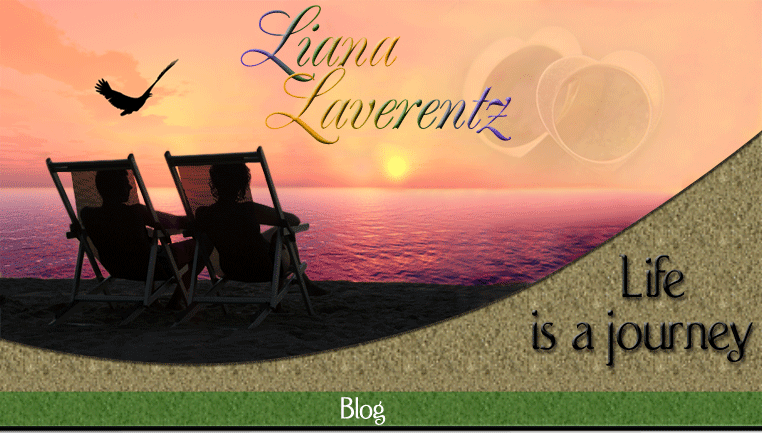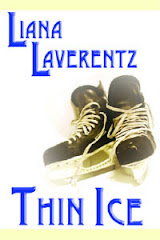
Okay, I know I promised a post on ways to regain your hormonal balance this week, but first we have to talk about the kind of things that can throw you out of balance. Because everything you do to put yourself back in balance won’t matter one bit if you keep doing things that send your hormones out of balance. One thing will cancel out the other and you’ll be going nowhere fast.
That’s where I feel like I am right now. I haven’t been right since I spent several days in the whirlpool at the Y, trying to loosen up a bad shoulder. The bad shoulder was caused by driving too rigidly for several hours while under a lot of stress. You know how the best way to drive is calm and relaxed (and NOT on the phone), aware of your surroundings and what’s coming your way. Well, I was driving to a strange place, meeting strange people, had to be there at a specific time, didn’t know how much farther it would be, got caught in road construction, and had a lot on my mind. Not ideal conditions for driving, especially for a PMDD woman. Stress sets us off like nothing else can.
So my neck and shoulder locked up, aggravating an old rotator cuff/pinched nerve injury, and because the pain was so intense, I sought the comfort of the whirlpool.
Big mistake, and a heavy price to pay for 20 minutes a day of sheer bliss. Two months later, and I’m still paying that price.
Most of us don’t realize our skin works like a bodily organ, much like our kidney, liver, or a lung. Skin absorbs things in the water or air, like toxins and pollution, the same way it absorbs lotion. Skin also releases toxins we absorb, inhale, or ingest, through sweat.
I knew this could happen, but the pain was so intense I didn’t care. I couldn’t type, couldn’t read, couldn’t do any of my favorite things. So I opted for denial and took a chance.
Next thing I know, I’m sitting in a tub full of toxins—specifically an overchlorinated whirlpool, overchlorinated because God knows who is using the whirlpool or what germs they might carry—just to get a little relief from my pain. I only did it for four or five days, just long enough to help the pain subside, but--between that and my new stress over not being able to read or write or spend any time worth mentioning at the computer--it was more than enough to mess up my hormonal balance.
So, number one: Chlorinated pools are no good for women with hormonal imbalances. I mention this specifically today because it’s summer here, and what do people do to escape the heat in the summer? Head for the nearest pool.
But think about this…you know what chlorine does to your hair. You know how itchy it makes your skin feel. You know how sticky you feel after you get out of the pool and dry off. How you smell of chlorine until you take a soap shower. Did you know you shouldn’t wear gold into a pool because the chlorine will weaken it, eventually causing it to crumble? Ask your favorite jeweler. I had the tines on a ring completely dissolve after a few trips to the whirlpool. I had to have the tines on the ring recrafted, and the jeweler said absolutely…keep all gold out of the pool.
So, if you still believe none of that chlorine is soaking into your body, then check out this link that discusses swimming and chlorine toxicity. Children are most at risk, but so are women’s hormonal balances. Not to get too far off topic, but fish have died from just the chlorine in tap water.
That’s where I feel like I am right now. I haven’t been right since I spent several days in the whirlpool at the Y, trying to loosen up a bad shoulder. The bad shoulder was caused by driving too rigidly for several hours while under a lot of stress. You know how the best way to drive is calm and relaxed (and NOT on the phone), aware of your surroundings and what’s coming your way. Well, I was driving to a strange place, meeting strange people, had to be there at a specific time, didn’t know how much farther it would be, got caught in road construction, and had a lot on my mind. Not ideal conditions for driving, especially for a PMDD woman. Stress sets us off like nothing else can.
So my neck and shoulder locked up, aggravating an old rotator cuff/pinched nerve injury, and because the pain was so intense, I sought the comfort of the whirlpool.
Big mistake, and a heavy price to pay for 20 minutes a day of sheer bliss. Two months later, and I’m still paying that price.
Most of us don’t realize our skin works like a bodily organ, much like our kidney, liver, or a lung. Skin absorbs things in the water or air, like toxins and pollution, the same way it absorbs lotion. Skin also releases toxins we absorb, inhale, or ingest, through sweat.
I knew this could happen, but the pain was so intense I didn’t care. I couldn’t type, couldn’t read, couldn’t do any of my favorite things. So I opted for denial and took a chance.
Next thing I know, I’m sitting in a tub full of toxins—specifically an overchlorinated whirlpool, overchlorinated because God knows who is using the whirlpool or what germs they might carry—just to get a little relief from my pain. I only did it for four or five days, just long enough to help the pain subside, but--between that and my new stress over not being able to read or write or spend any time worth mentioning at the computer--it was more than enough to mess up my hormonal balance.
So, number one: Chlorinated pools are no good for women with hormonal imbalances. I mention this specifically today because it’s summer here, and what do people do to escape the heat in the summer? Head for the nearest pool.
But think about this…you know what chlorine does to your hair. You know how itchy it makes your skin feel. You know how sticky you feel after you get out of the pool and dry off. How you smell of chlorine until you take a soap shower. Did you know you shouldn’t wear gold into a pool because the chlorine will weaken it, eventually causing it to crumble? Ask your favorite jeweler. I had the tines on a ring completely dissolve after a few trips to the whirlpool. I had to have the tines on the ring recrafted, and the jeweler said absolutely…keep all gold out of the pool.
So, if you still believe none of that chlorine is soaking into your body, then check out this link that discusses swimming and chlorine toxicity. Children are most at risk, but so are women’s hormonal balances. Not to get too far off topic, but fish have died from just the chlorine in tap water.
So tap water is also a concern for women with hormonal imbalances. (Drinking distilled water is best.)
Other things a woman with hormonal imbalances needs to avoid are (and I know this will have you shaking your head and saying no way, forget it, like I did for too many years to count, but if you want to stop feeling miserable, this is what you have to do):
Alcohol: Alcohol is especially dangerous to women with PMDD, but affects all women with hormonal imbalances.
Caffeine: Caffeine stimulates the nervous system, but worsens your hormonal imbalances.
Chocolate: Women who suffer from hormonal imbalances crave chocolate. Pure, dark chocolate is rich in magnesium and eicosanoids, which our bodies need. Unfortunately, most chocolate is also laden with fat and sugar, which worsens the imbalance. Dark chocolate, with 70% or more cocoa in it, is the best kind to eat for your hormonal needs. Not the kind with nougats or creme filling or caramel in it. Those only offer even more sugar and fat.
Oh, and never drink milk with your chocolate, or it cancels out the antioxidant benefits obtained.(So much for milk and brownies...)
Nicotine: Nicotine stimulates the nervous system, but worsens any hormonal imbalance.
Refined Sweeteners: Sugar, corn syrup, high fructose corn syrup, or any processed sweetener worsens any hormonal imbalance--and yet the brain craves sugar, needs it to survive. So we can't get away from eating sugar altogether, but we can choose to eat healthy sources of sugar—fruits, vegetables, whole grains--over refined sources, so that our brain gets the kind of sugar it needs to work properly, while the rest of our body doesn't suffer from the effects of too many sweets, such as obesity and diabetes.
Sugar-Free Food and Drinks: Sorry, ladies, but sugar substitutes only worsen hormonal imbalances and we need to avoid them altogether.
Doesn’t leave us with anything fun to eat or drink, does it?
That’s not to say you can never have an ice cream cone again, or a glass of wine, or a diet soda, or anything made with chocolate. (In fact, here’s a blog dedicated to the health benefits of dark chocolate, so that you don’t feel totally deprived. Can you tell chocolate is the one vice I haven't been able to give up yet?) But while your hormones are out of balance--and you will know they are out of balance by the way you feel—it’s best to avoid these things until you are back in balance, and your body is better able to handle the occasional jolt to your hormones caused by one of these substances.








.jpg)



